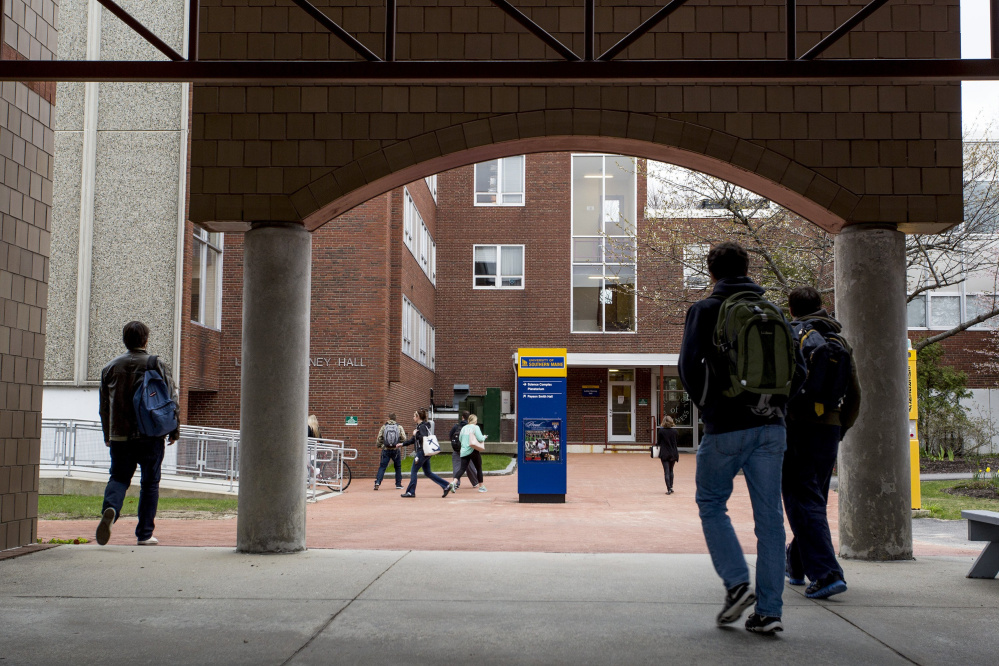For a while, Maine’s “one university” concept sounded like a nicer way of saying “budget cuts.”
For two painful years, it was the rationale behind the consolidation and elimination of programs needed to close a deficit in the operating budget in a time of declining enrollments. It was especially acute at the University of Southern Maine in Portland and Gorham, where the bulk of the cuts were made.
Now we are seeing the first real sign that “one university” can mean more than just cuts. It can also mean growth in new and exciting ways.
Last week, the public got a look at the Maine Center for Graduate Professional Studies, a developing idea to combine new investment with existing resources to deliver services that would not otherwise exist. The center would combine business, law and public policy graduate schools into a single entity, where students could do combined degrees and work on interdisciplinary projects, not only in academic settings but also in real-world collaborations with Maine businesses.
The program would get off the ground as soon as next fall, with a combined master’s in business administration program, involving faculty and students in both Portland and Orono. Eventually, the programs would be housed in a new building in Portland that would include space for conferences and facilities to help start new businesses as well as give startups what they need to grow.
If successful, this could be a catalyst for economic development in Maine that the state desperately needs. The state is aging fast, ushering more of its residents into retirement than it graduates from high schools.
Despite being a desirable place to live, Maine has not been able to fight that demographic trend because it does not have the kind of jobs that would attract younger people to move here and start their careers. And that is in part because businesses looking to move here or expand can’t rely on an educated labor pool, creating a chicken-and-egg spiral that keeps our economy stagnant while it grows elsewhere.
The exciting thing about the Maine Center is that it attacks the problem from several angles at once. The combined degree programs would attract young people to the state, and helping them develop relationships with local businesses while they are in school makes it more likely that they would choose to stay after graduation. And involving faculty and students in helping solve problems for real businesses will spur their growth, just the way the land grant colleges supported development of agriculture in the 19th and 20th centuries.
Now that the cutting has been done, this is the kind of growth of the university system that could benefit all Mainers, even if they are not planning to sign up for classes. We are looking forward to seeing this new institution take shape.
Send questions/comments to the editors.


